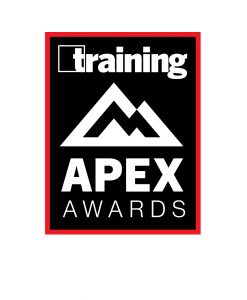
Apple Federal Credit Union’s LEAP management trainee (MT) program aims to provide a dynamic learning program for high-potential college graduates to develop the skills they need to contribute effectively to different functional areas and to be effective leaders in the organization. By creating a fast-track for top college graduates interested in financial services, the program seeks to strengthen the organization’s talent pool for succession planning, increase staffing flexibility, and promote retention of high-potential candidates.
Program Details
To qualify for the LEAP program, candidates must have completed a Bachelor’s degree or be working toward a degree with six years of financial service experience. Their last performance review rating should be a 3.5 out of 5.0 or higher. They must be recommended by their supervisor.
To apply for the program, candidates must take a job-related assessment and complete an application that include short-essay questions about why they wish to be considered, how they believe they can contribute to the organization, and their long-range career goals. They are selected by a management-level panel. Typically, four individuals are selected for each year-long program.
MTs are required to complete all the core training courses, as well as management training. MTs receive assessments following completion of each of the courses and must earn a score of 80 percent to move forward to the next class. Between classes, MTs return to their regular positions. The MTs also complete 49 job rotations to receive a good understanding of what every department/business unit does, as well as each committee meeting.
Prior to each rotation, the MT is required to create their own learning objectives to show senior management what they value, their level of cognitive thinking, and their organizational skills. After each rotation, they must submit a written document detailing their experience, including three things they learned. Each rotation lasts a half or full day.
The participants also are assigned a mentor; that mentor relationship lasts for one year.
In addition, the MTs are responsible for completing an Action Learning Project. Action Learning involves working on real problems, focusing on learning, and implementing solutions. The Action Learning is assigned by the Executive Leadership Team or the MTs recommend an actual work problem to analyze and develop an action plan to solve the challenge. Completion of the project is a requirement of successful completion of the program. Results are presented to the Executive Leadership Team and senior management team members applicable to the project. Completion of certain learning and program milestones are celebrated, and a graduation program is held at the end of the LEAP program.
The last LEAP cohort designed and implemented the Having Other Paths and Perspectives (HOPP) Program. This enrichment program allows staff members to shadow in one area of the organization for up to three days.
Results
The LEAP program contributes to Apple Federal Credit Union’s retention (67 percent) and promotion (80 percent) of high-potential, high-performing individuals. In addition, the organization’s Employee Net Promoter Scores (NPS) and Glassdoor ratings are both above their business goals, sitting at 61.5 and 4.0, respectively.




